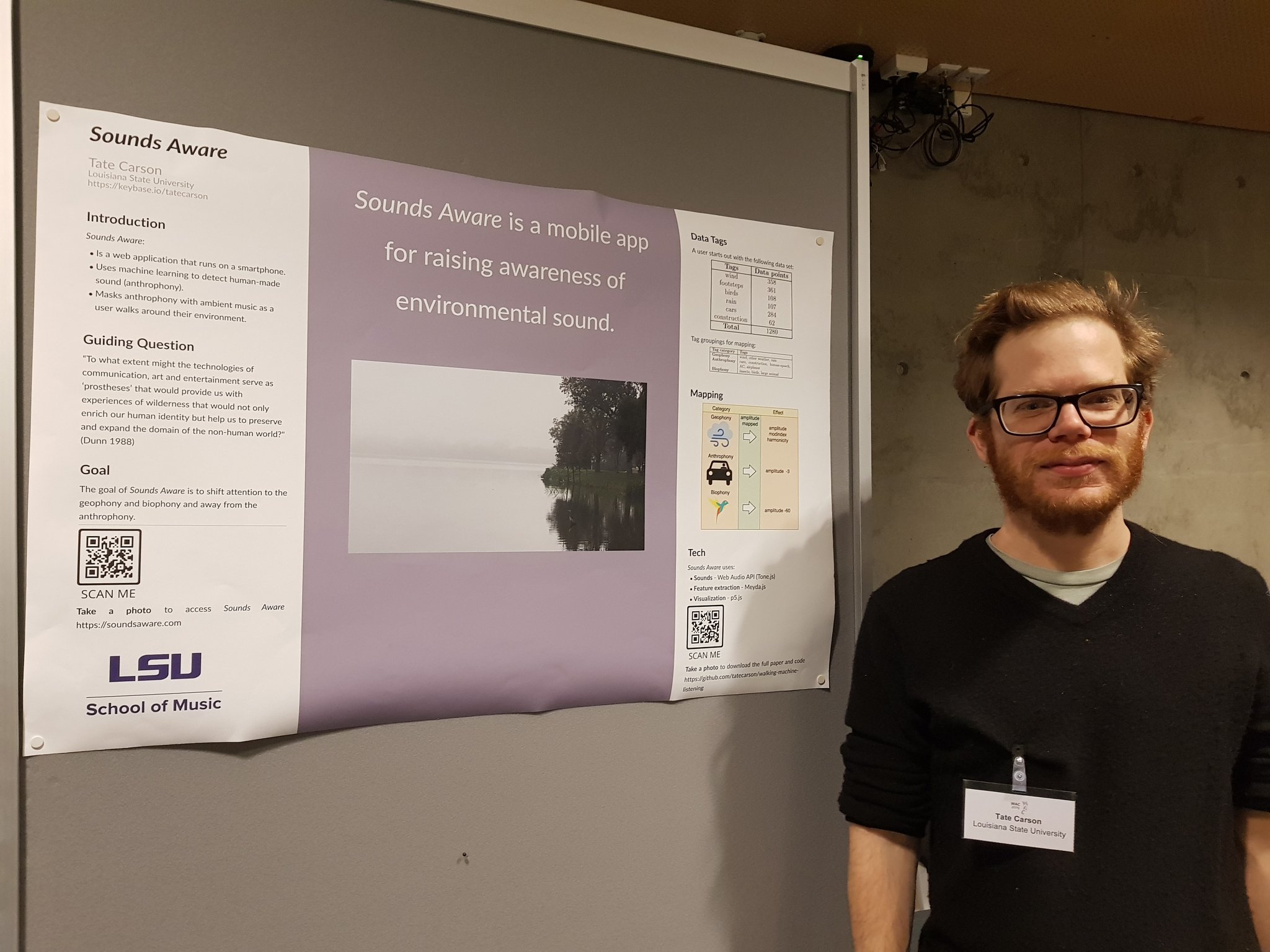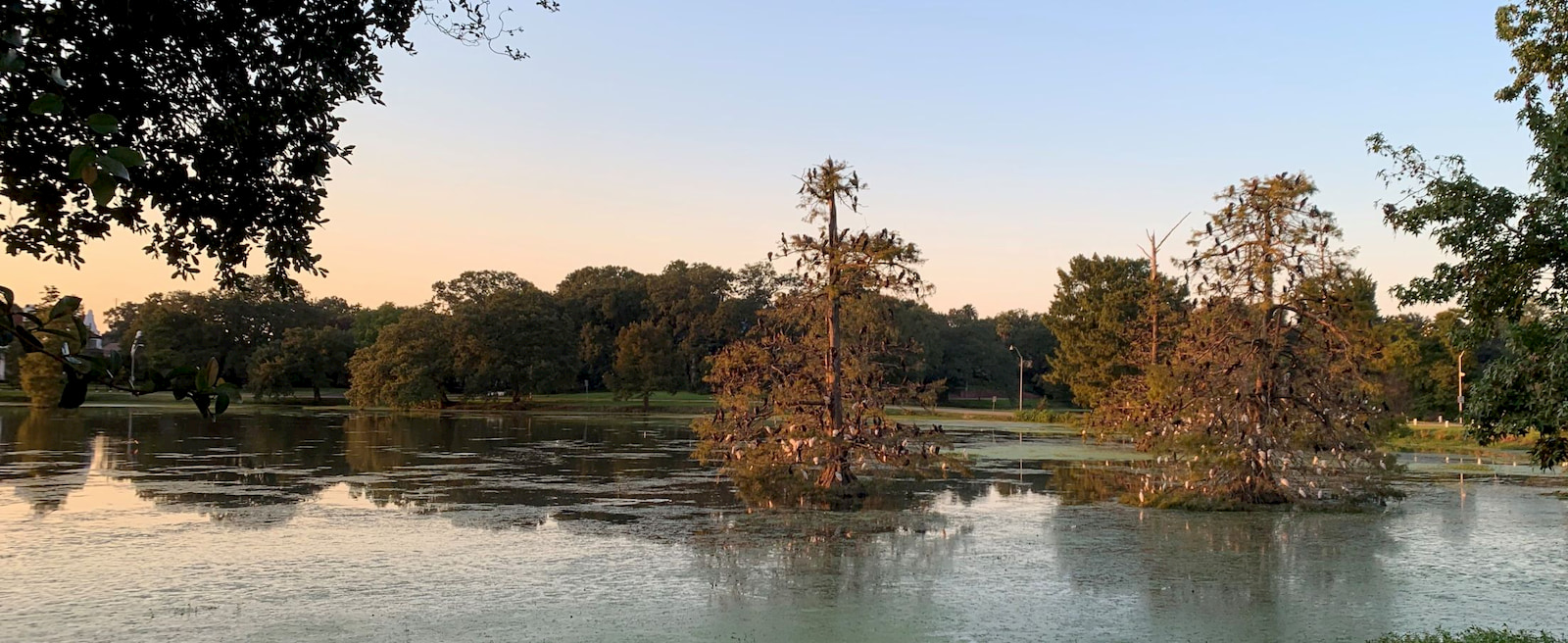Sounds Aware Project Overview
This project exists in two versions of a web app called Sounds Aware. The first version, completed in 2019, is described in this paper. The second version was part of my dissertation research at Louisiana State University in 2021, and is described below.
Sounds Aware (2019)
Abstract:
Sounds Aware is a web application that runs on a smartphone and uses machine learning to detect human-made sounds (anthrophony), masking them with ambient music as the user walks around their environment. Though the model is pre-trained with the author’s local environmental sounds, users can train the model on their unique soundscape for a personalized experience. After training, users can listen to ambient music based on the traits of the surrounding anthrophony. When the app senses less anthrophony and more biophony or geophony, the music fades, drawing the user's attention to the natural sounds.
Note: In this version, any sounds you tag are only available for one session and do not persist after reloading.
Presentation at Web Audio Conference 2019 (Norwegian University of Science and Technology, Trondheim, Norway)
Talk
Note: There was a glitch with the video recording that caused my voice to sound lower.
Poster

Sounds Aware (2021)
I wanted to expand on the concept of the first version of Sounds Aware and create a social media application focused on sharing soundwalks. The description below represents a proof of concept, which I hope to develop into a more robust application. The dissertation describes the evolution of my ideas through both versions of Sounds Aware and outlines future possibilities.
Abstract:
Sounds Aware is a mobile web app that allows users to record soundwalks and share them, enabling others to experience these walks. The creator of a soundwalk records their perceptions of the restorativeness of specific places during the walk. These perceptions are sonified for others to hear when they experience the soundwalk later. Sounds Aware aims to be a social app that is restorative to our attention, encouraging engagement with nature while utilizing decentralized technology that exists outside of the attention economy.
The attention economy, prevalent in much of our current technology, creates economic incentives that negatively affect our ability to focus. Attention Restoration Theory is discussed as a potential solution, suggesting that nature is restorative to our attention. Sounds Aware addresses both the nature-based solution and the technical challenge posed by the attention economy.
